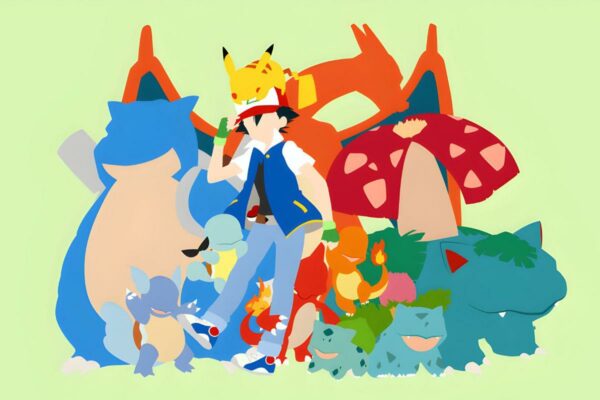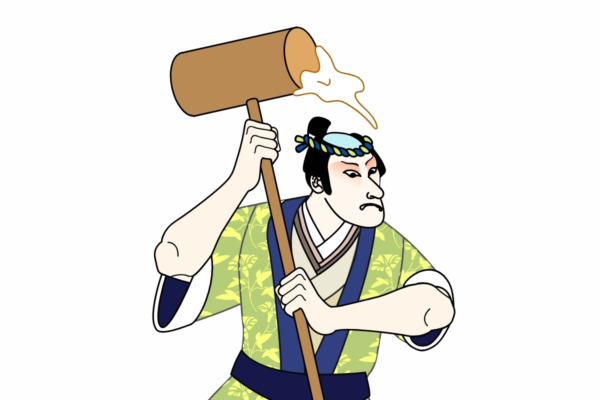Satoshi Kon is regarded as one of the most groundbreaking and influential directors who ever set foot in the animation industry and, to a more significant extent, cinema. He only made four films due to his death at the young age of 46; regardless, he is considered a legend in the business, which is a tribute to his creativity and mastery of art.
Creator of Neon Genesis Evangelion, Hideki Anno, once famously said that animation needed to look outside Japan for inspiration, and, in many ways, Satoshi Kon was the answer. His influences range from Mobile Suit Gundam to Fyodor Dostoevsky, creating movies steeped in anime culture but also unique. It’s unlike anything you’ve seen; if you’ve seen anime, you know that is a bold claim.
Satoshi Kon has famously been cited as the inspiration for today’s most recognised directors, such as Christopher Nolan and Darren Aronofsky. His works are still inspiring millions of mangaka and directors today.

If one thing is true about Satoshi Kon’s films, they are as engaging as they are difficult to pin down. His movies are wildly experimental, using the medium of animation to blur the line between reality and fiction in a million different ways. This is why his films are so engaging and notoriously tricky to get into. They possess so many layers of detail and nuance that it can be overwhelming, but it is worth your time to experience them.
This list will tackle and celebrate the many works the legend has been a part of!
1: Roujin Z

Roujin Z served as Satoshi Kon’s primary stepping stone into the world of anime. As the film’s art director and set designer, he oversaw the film’s visual aesthetic and handled the production of all artwork and layouts. Roujin Z, written by Akira’s Otomo Katsuhiro, was a vital creative force and testing ground for Kon’s later works.
It combines elements of sarcasm and self-awareness to create a profound morality tale. Recognisable, right? The quirkiness and commentary in most of Satoshi Kon’s works never fail to amuse and make the audience think about the story’s underlying meaning. The story’s only for some, as it centres on a dilemma in medical ethics: creating a robot to lead geriatric care. You will want to hug your loved ones real tight if you can stomach what happens here.
2: Memories (Magnetic Rose)

After being one of the driving forces behind an animated film, Kon felt prepared to take on a more prominent role in a future endeavour. Memories is an anthology film in which the illustrious filmmaker also played the roles of scriptwriter and art director for a segment. This short story, Magnetic Rose, is a thrilling space adventure about two engineers who are sent to investigate a famous opera singer.
Of course, he has to throw in some “Kon-isms,” or those mind-blowing aspects in his movies that are years ahead of their time and make you think about the future, so the narrative isn’t as straightforward as it looks at first glance. Suddenly, it becomes a visual acid trip with you on the edge of your seat. The short acts as an onion with multiple layers, slowly peeling itself to expose a shocking revelation. Now that’s the Satoshi Kon we know and love.

Tokyo Godfathers is Kon’s masterful attempt at a family movie, a Christmas movie at that. It is a lighthearted comedy where a group of homeless people find themselves with an abandoned baby and set the goal to return him to his parents. What follows is one of the most hilarious movie experiences I’ve ever experienced, with gorgeous animation and some fantastic voice-actor chemistry to back it up.
As with every Christmas film, there are clichés to be found, but Kon gives them his own spin, making them fresh and unique, even adding some social and political commentary to the mix without losing the film’s tone.
Tokyo Godfathers is a film apt for all ages, but you get the most out of it as an adult. It’s landed in this spot because there are still “Kon-isms” hinting to viewers about what will come in the rest of his filmography.
4: Paranoia Agent

Here we see Satoshi Kon in his natural habitat, directing a series that, at first, seems all plain jane with a simple plot, and then flips you over, turns you around, and discombobulates you, making you wonder where you are and what you’re doing. For the sake of everything holy, can this man make a standard anime show just once? Paranoia Agent starts as a classic detective anime with more twists and turns than a drifting competition in Japan.
It would be a disservice to spoil too much of what makes this anime so enjoyable, but fans of Satoshi Kon will recognise his signature style. This story revolves around searching for a notorious and evasive youngster who uses a baseball bat to beat up innocent bystanders. The 13-episode structure makes this anime a complete season, which is different from his standard movie-length efforts. Certain viewers may have felt the show ran too long because of its unconventional format, with some episodes serving more as fluffy filler than world-building. Still, the reward is always spectacular, and the ride is always fascinating.
5: Millennium Actress

Satoshi Kon’s second full-length film, Millennium Actress, takes the second spot on this list, and the differences between it and Tokyo Godfathers are evidently clear. Don’t get me wrong: this is still primarily a family movie. But, on structure alone, the film presents a colossal shift in storytelling and ambition. Millennium actress is about two filmmakers making a documentary about a once-famous Japanese actress as they seek to uncover her secrets and shine a light on her mysterious life.
Kon takes this premise to the next level as he has the two filmmakers jumping around in different movies that the actress starred in, breaking the fourth wall in a way that can be as hilarious as it can be dramatic.
It’s clear from watching this movie that the animation team had a blast. Each film the staff visited presents a tonal shift mirrored aesthetically and narratively, and it becomes more inventive as the film progresses.
I will not spoil the ending, but it is one of my favourites, and the most uplifting Kon has written.

Perfect Blue was and still is a monumental step for Kon and adult animation. Movies like Requiem for a Dream and Black Swan never shy away from the direct influence perfect blue had on them, even going as far as to recreate scenes shot for shot. Perfect Blue is Kon’s most anime-rooted film, exploring Otaku culture and Japanese Idol singers. Even though it is full of anime references, it is unlike any other anime.
Perfect Blue follows Mina, an Idol-turned actress who struggles with her identity because her celebrity persona doesn’t seem to correlate with her idea of herself. It’s a perplexing narrative that Kon masterfully explores, with characters like a stalker, a manager, and fellow performers all contributing to the overall vision.
As you might expect, the movie is primarily a psychological horror but goes much above and beyond the boundaries of the genre, which is impressive. If you still need convincing, a great video by YouTuber Super Eyepatch Wolf explores the movie elements and makes excellent points on how ahead it was. I considered putting this film as no. 4 on the list since it is difficult to get into, but there is nothing quite like the final movie on the list.
7: Paprika

Satoshi Kon’s swansong before his passing, widely regarded as his best film, Paprika has intrigued and perplexed viewers since its premiere due to its extroverted and continuously altering animation style and incredibly inventive narrative. Its plot is all about dreams, as the characters have a device used to get inside the dreams of others.
If that plot summary sounds familiar, it is because Paprika is the film that inspired Inception, and just like its foster child, it could be more explicit. The movie feels almost like a Venus Flytrap: it’s so colourful and vibrant that you can miss important details as the film continues.
The film never stops entertaining, but it takes some time to digest; once you’ve finished it, you can only declare to have witnessed a masterpiece that you only half understood. It’s a film that gets better with each re-watch since it’s so deep and packed with mind-boggling concepts that are explored without you even noticing. It’s a beautiful film that everyone should see, but not as a first step.
Displays of Satoshi Kon’s Animation Mastery

















































